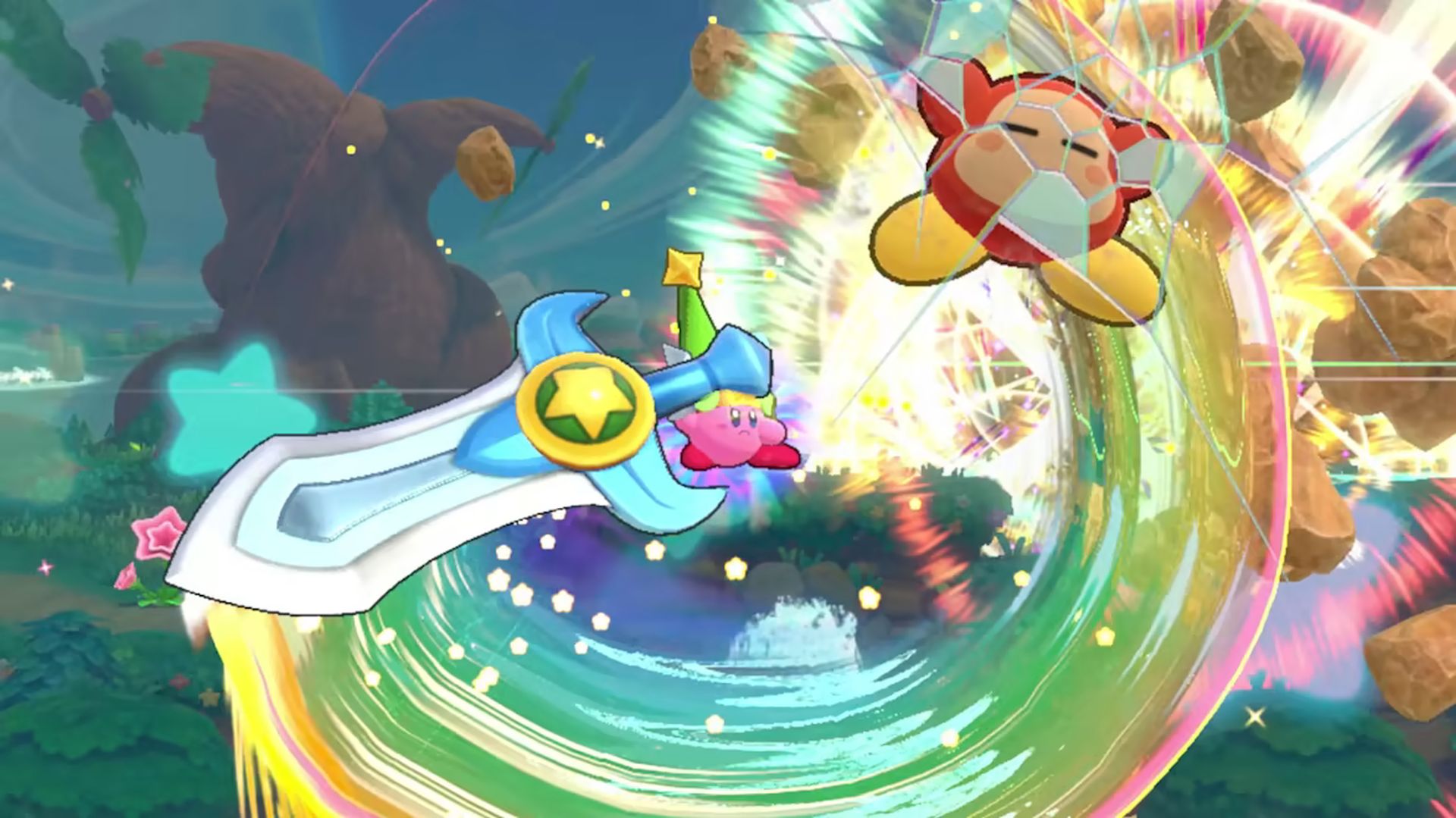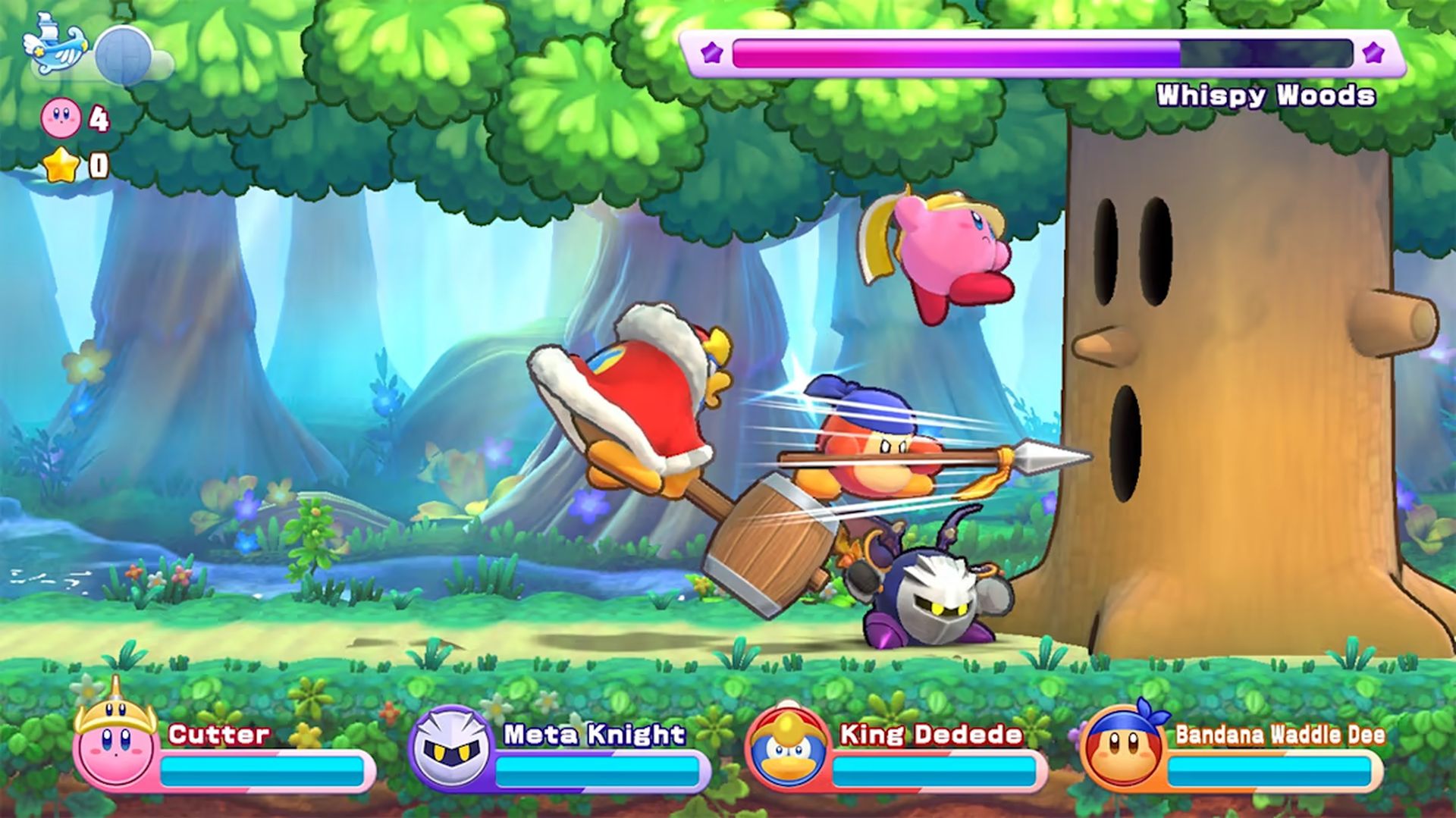Kirby’s Return to Dream Land Deluxe Review – Back to Before
Last year’s Kirby and the Forgotten Land was a breath of fresh air for the franchise, taking the imaginative and inventive world of Kirby the franchise, as well as the signature mechanics of Kirby, the character, and translating them into a larger scope three dimensional world, without losing much of whaat had made the franchise so beloved to begin with. Taking a series of games legendary for how friendly to completely new players (even those who might be holding a controller for the very first time!) and translating it to the much more complex three dimensional space is obviously a laudable achievement, and Kirby and the Forgotten Land stands as one of the best games on the Switch.
However, it is not the only great Kirby adventure on Switch, not anymore. After the triumphant transition of the franchise to 3D, Nintendo and HAL Laboratories have decided to take a victory lap by revisiting one of the best and most beloved classic 2D entries in the series. Return to Dream Land originally launched on the Wii, after an extremely protracted development cycle (the project had originally been intended to be the game that took the franchise 3D, and was supposed to be for the GameCube). Upon release, it instantly won plaudits for being arguably the best, most effective, and most accomplished take, on the classic template.
Multiple 2D Kirby games would follow in the ensuing decade, but arguably, none of them managed to reach the highs of Return to Dream Land. Which makes it fitting, in a way, that after delivering one of the best games in the series with their grand transition to the third dimension, Nintendo and HAL are now returning to one of the other best games in the series, the peak of 2D Kirby so to say.

“After delivering one of the best games in the series with their grand transition to the third dimension, Nintendo and HAL are now returning to one of the other best games in the series, the peak of 2D Kirby so to say.”
Return to Dream Land is almost exactly the game you remember from the Wii. It’s a classic, traditional Kirby game through and through – you’re talking about a 2D platform with bright, colourful, cheerful stages, and extremely, extremely forgiving platforming, traversal, and combat. Kirby himself retains his signature abilities, including the one that lets him stay airborne practically forever, his ability to suck pretty much anything in his way until it’s… not, and, of course, the signature Kirby ability to copy the abilities of enemies and objects he swallows. The elements all blend to create an extremely charming, inviting, and easygoing world, where you can take your time to slowly come to grips with the increasingly layered and stacked demands the game makes of you – first it’s just movement, then it can be combat, then it’s combat while movement, then it’s combat and movement with some puzzle solving thrown in, and so on. All of this is second nature to seasoned veterans of the medium, and certainly to everyone who has found this review, but as I mentioned, the true triumph of Kirby games is how effective they are at onboarding totally new players who might not have any experience with the medium. Return to Dream Land is a masterclass in this, and honestly seeing how it slowly and steadily amps up the complexity gives me an appreciation for how well it is designed.
Which isn’t to say that that’s the only appreciation more experienced players can get from Kirby. Typically the franchise tends to retain depth and challenge for returning or experienced players by making the critical path extremely easy, but hiding some collectibles and secrets out of the way – these are the ones that require you to actually pay attention, be quick with your movement and platforming, and mostly, actually play the game well. Return to Dream Land retains this aspect in spades too, with even the earlier levels hiding some great secrets that I kept going back to them to play to uncover, because my ego refused to accept the notion that I might have missed anything.
This deeper content for more experienced players is still not going to turn Kirby into Donkey Kong or Mario – it’s a more satisfying platformer for veterans with it taken into account, but it’s still ultimately a beginner friendly game, meaning you’re simply not going to get platforming at that level here. What is here is still great, but you must keep what it is in mind – which is to say, it’s an extremely high quality game made for less experienced players, by definition, a lot of what it does well will be lost on more experienced ones.

“It’s an extremely high quality game made for less experienced players, which means by definition, a lot of what it does well will be lost on more experienced ones.”
It’s still a delight to watch newer players (such as younger kids, or even adults who don’t typically play games) play, but Return to Dream Land obviously goes a step further by letting you join them. The game includes full co-op support for up to four players at a time, with players being able to play as Kirby, King DeeDeeDee, Waddle Dee, and Meta Knight, adding an element of cooperative chaos to proceedings. It can also further emphasize the game’s newcomer friendly nature, with a more experienced player helping bail out a less experienced one if they hit a roadblock. It’s local only, so its utility for more experienced players is, again, limited, but within the confines of what this game is trying to do, it’s great.
Other than this excellent design philosophy, pretty much the entire game made it over to the Switch as-is. It just looks a lot better – the gorgeous Kirby art style translates incredibly well to HD (which, remember, the Wii was not), and and every single part of the game has been touched up and polished to a sheen. Kirby, the character, and the world he inhabits, has never looked so delightfully expressive and colourful, bright, and cheery before.
New to the Deluxe version on the Switch is a brand new epilogue mode, a meaty and substantial adventure clocking in at a further 2-3 hours on top of the main campaign. This epilogue stars Magolor, the interplanetary adventure whom you set out to help in the main game and who forms the narrative crux of that adventure. You can’t access this epilogue until you beat the main game (which makes sense for a lot of reasons that anyone who has finished the original will be able to attest to), and is a fun little romp that also pushes back on the player a bit more (so, again, this is content for the slightly more experienced player – again, this makes sense because by this point the developers can assume you have at least finished the base game, if nothing else, and so are not a total newcomer).
While the new mode is the headlining new addition, there is other stuff too; there are a handful of all new copy abilities added for Kirby available during the course of the main adventure (which accommodates said new abilities surprisingly well), as well as an even easier, helpful assist mode for new players.
Do I recommend Return to Dream Land Deluxe? I do, especially if you have kids or less experienced players around. Simply watching them play this game can be a joy, but Return to Dream Land of course, does let you join in as well. It’s a well designed game that represents the series at the peak of its powers, and I think longtime series fans are going to find a lot to love here, especially if they haven’t played this title before. If you don’t fall in those categories, you might play through this and wonder what all the fuss was about, since on the critical path, for an experienced player, the whole thing can be done in just a few hours – but then again, that’s really not how it’s meant to be played, is it?
This game was reviewed on Nintendo Switch.


Comments are closed.